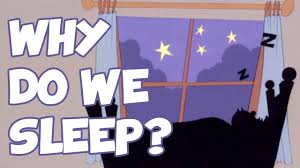
Breaking News
 Mike Benz just examined Epstein files and he's got a telltale theory…
Mike Benz just examined Epstein files and he's got a telltale theory…
 BREAKING GLOBAL EXCLUSIVE: Former High-Level CIA Operative Patrick Byrne Reveals That...
BREAKING GLOBAL EXCLUSIVE: Former High-Level CIA Operative Patrick Byrne Reveals That...
 Junk-food Bans for SNAP Users To Begin in January
Junk-food Bans for SNAP Users To Begin in January
Top Tech News
 EngineAI T800: Born to Disrupt! #EngineAI #robotics #newtechnology #newproduct
EngineAI T800: Born to Disrupt! #EngineAI #robotics #newtechnology #newproduct
 This Silicon Anode Breakthrough Could Mark A Turning Point For EV Batteries [Update]
This Silicon Anode Breakthrough Could Mark A Turning Point For EV Batteries [Update]
 Travel gadget promises to dry and iron your clothes – totally hands-free
Travel gadget promises to dry and iron your clothes – totally hands-free
 Perfect Aircrete, Kitchen Ingredients.
Perfect Aircrete, Kitchen Ingredients.
 Futuristic pixel-raising display lets you feel what's onscreen
Futuristic pixel-raising display lets you feel what's onscreen
 Cutting-Edge Facility Generates Pure Water and Hydrogen Fuel from Seawater for Mere Pennies
Cutting-Edge Facility Generates Pure Water and Hydrogen Fuel from Seawater for Mere Pennies
 This tiny dev board is packed with features for ambitious makers
This tiny dev board is packed with features for ambitious makers
 Scientists Discover Gel to Regrow Tooth Enamel
Scientists Discover Gel to Regrow Tooth Enamel
 Vitamin C and Dandelion Root Killing Cancer Cells -- as Former CDC Director Calls for COVID-19...
Vitamin C and Dandelion Root Killing Cancer Cells -- as Former CDC Director Calls for COVID-19...
 Galactic Brain: US firm plans space-based data centers, power grid to challenge China
Galactic Brain: US firm plans space-based data centers, power grid to challenge China
The Purpose of Sleep? To Forget, Scientists Say

Over the years, scientists have come up with a lot of ideas about why we sleep.
Some have argued that it's a way to save energy. Others have suggested that slumber provides an opportunity to clear away the brain's cellular waste. Still others have proposed that sleep simply forces animals to lie still, letting them hide from predators.
A pair of papers published on Thursday in the journal Science offer evidence for another notion: We sleep to forget some of the things we learn each day.
In order to learn, we have to grow connections, or synapses, between the neurons in our brains. These connections enable neurons to send signals to one another quickly and efficiently. We store new memories in these networks.
In 2003, Giulio Tononi and Chiara Cirelli, biologists at the University of Wisconsin-Madison, proposed that synapses grew so exuberantly during the day that our brain circuits got "noisy." When we sleep, the scientists argued, our brains pare back the connections to lift the signal over the noise.
In the years since, Dr. Tononi and Dr. Cirelli, along with other researchers, have found a great deal of indirect evidence to support the so-called synaptic homeostasis hypothesis.
It turns out, for example, that neurons can prune their synapses — at least in a dish. In laboratory experiments on clumps of neurons, scientists can give them a drug that spurs them to grow extra synapses. Afterward, the neurons pare back some of the growth.

 The Ever-Widening War
The Ever-Widening War

